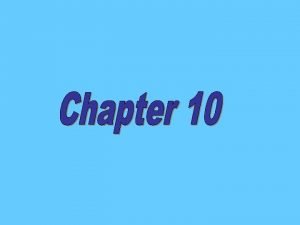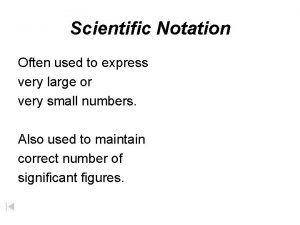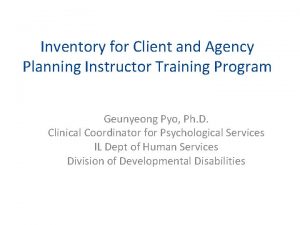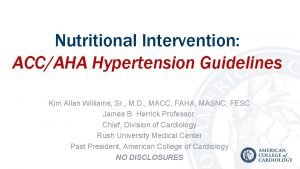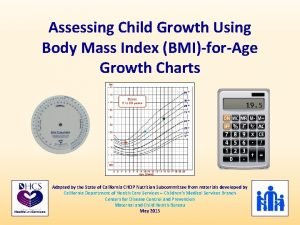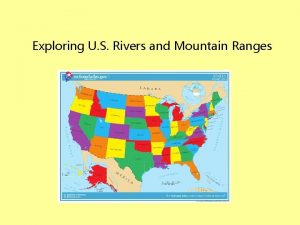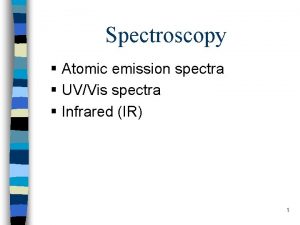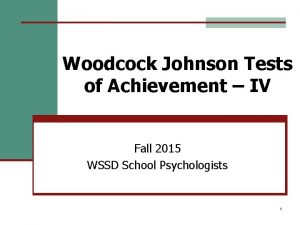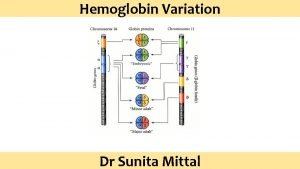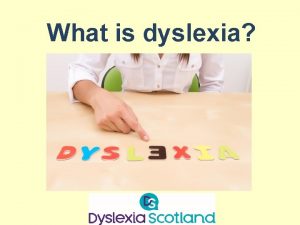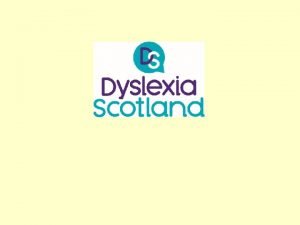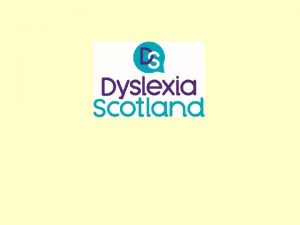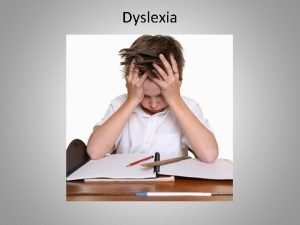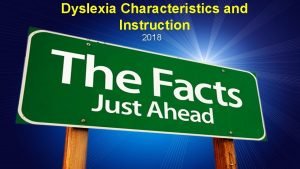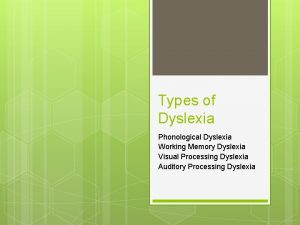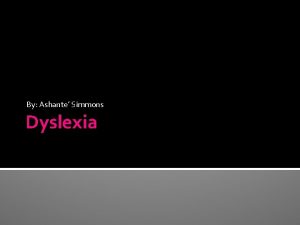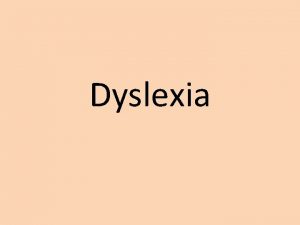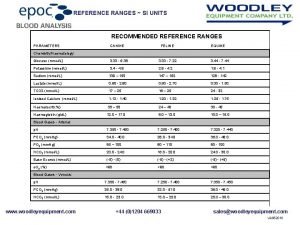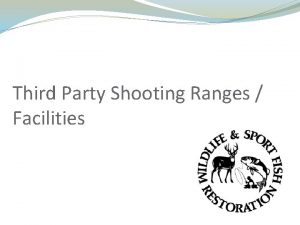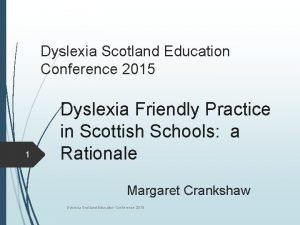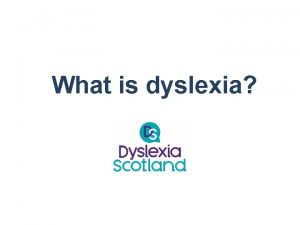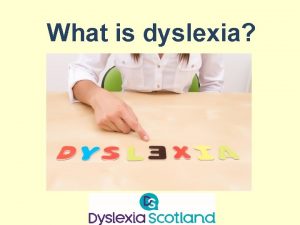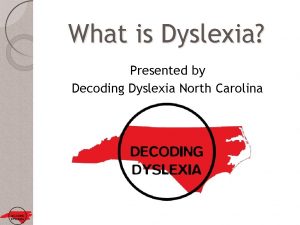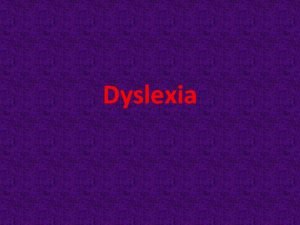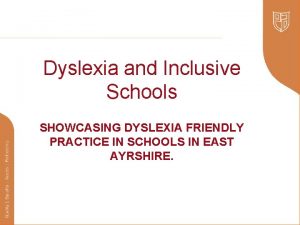What is dyslexia Dyslexia is very common Ranges



















- Slides: 19


What is dyslexia?

Dyslexia is very common • Ranges from mild to severe • 1 in 10 is dyslexic and of those, 1 in 4 has severe dyslexia • Often runs in the family

Dyslexia can affect reading, writing and spelling • • Difficulty matching sounds to letter combinations Similar looking / sounding letters are confused (for example p, b and d) Can’t remember common letter patterns in spelling BUT Can cope well verbally – talking may be a strength

It’s also about other things Dyslexia can also affect: - short term memory - ability to follow directions or instructions - organisational skills

Important! Everyone is different and dyslexia affects people in different ways. Not everyone with dyslexia will experience the same things. Dyslexia is not a sign of low intelligence. Some of the most successful business people are dyslexic.

Say the colour not the word! Try naming the colours below to find out what it is like when your brain has to work extra hard. It can be like this for people with dyslexia. Red Blue Pink Yellow Green Purple Orange Yellow Pink Brown Purple Blue Red Yellow Red Blue Pink Yellow Green Purple Orange Brown Purple Blue Red

Common difficulties • Poor short-term memory (names, numbers) • Problems with time keeping, managing tasks, concentration and organisational skills • Difficulty following instructions or sequences Children with dyslexia may be accused of not trying – but they are often very tired because of these extra difficulties.

Co-occurring visual issues Symptoms of visual stress linked to other issues such as epilepsy, hypersensitivity to light or migraine are also common for people with dyslexia – like the Rivers Effect:

Not all people with dyslexia will experience visual distortions in text – but some may find the text blurs or moves on the page:

Visual stress Some people with visual stress find that coloured glasses or overlays help. 11

Audio-processing issues Some people with dyslexia can’t recognise subtle differences between sounds in words, even though the sounds themselves are clear. They may have: • difficulty understanding listening • difficulties with concentration • delays in understanding/ responding to spoken language when

But people with dyslexia also have strengths… They may: • be creative, out of the box thinkers • have good problem solving skills • have excellent ‘people’ skills

The world is more dyslexia friendly these days: • Greater awareness and understanding - at school and in the workplace • Computer technology and Apps • Coloured paper and overlays • More teacher training • People sharing their stories and experiences

Dyslexia Scotland • A national Helpline for anyone to contact 0344 800 8484 or email helpline@dyslexiascotland. org. uk • Training and resources for teachers • A range of free publications for parents, teachers, people with dyslexia, employers and more

Dyslexia Scotland • A network of volunteer-led branches across Scotland • Adult Networks for people to share experiences and ideas • An Employment Service for adults with dyslexia • A quarterly magazine for members Find out more at www. dyslexiascotland. org. uk

Dyslexia Scotland • A network of volunteer-led branches across Scotland • Adult Networks for people to share experiences and ideas • An Employment Service for adults with dyslexia • A quarterly magazine for members including a special children’s edition each year Find out more at www. dyslexiascotland. org. uk

Connect with us www. dyslexiascotland. org. uk

 There is very few soup in the bowl
There is very few soup in the bowl It is a very shallow skillet with very short sloping sides
It is a very shallow skillet with very short sloping sides Very bad to very good scale
Very bad to very good scale A little food or a few food
A little food or a few food Scientific notation rules
Scientific notation rules Icap score ranges
Icap score ranges Blood pressure range
Blood pressure range Body mass indicator
Body mass indicator Largest tidal ranges in the world
Largest tidal ranges in the world Inr levels
Inr levels Vital signs normal rate
Vital signs normal rate Mountain ranges in the us
Mountain ranges in the us Ural mountains
Ural mountains Normal esr in blood test
Normal esr in blood test Electronic energy level
Electronic energy level Coastal and continental temperature ranges
Coastal and continental temperature ranges Three ranges of as curve
Three ranges of as curve Woodcock-johnson iv scoring chart
Woodcock-johnson iv scoring chart Nonverbal index wisc-v
Nonverbal index wisc-v Hemoglobin variants
Hemoglobin variants


